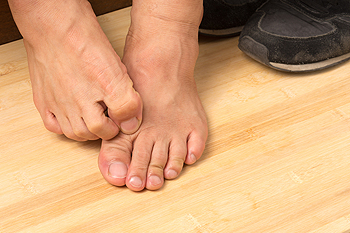 Blood circulation is an essential bodily function since it supplies the body’s vital organs with enough oxygen and nutrients needed to operate. Poor blood circulation can potentially harm the heart, kidneys, and brain, and it may even have fatal consequences if left untreated. One of the most common signs of poor circulation is numbness in the hands and feet. This is often the result of compressed nerves, extreme coldness, a lack of magnesium, and vitamin B12 deficiency. Another obvious sign of poor circulation is swelling in the lower extremities. If you notice you have swelling, you should lay down and raise your legs up above your heart. Coldness in the hands and feet is another symptom of poor circulation that should not go unnoticed. A disruption of blood flow prevents the blood from reaching the furthest parts of the body, which are the fingers and toes.
Blood circulation is an essential bodily function since it supplies the body’s vital organs with enough oxygen and nutrients needed to operate. Poor blood circulation can potentially harm the heart, kidneys, and brain, and it may even have fatal consequences if left untreated. One of the most common signs of poor circulation is numbness in the hands and feet. This is often the result of compressed nerves, extreme coldness, a lack of magnesium, and vitamin B12 deficiency. Another obvious sign of poor circulation is swelling in the lower extremities. If you notice you have swelling, you should lay down and raise your legs up above your heart. Coldness in the hands and feet is another symptom of poor circulation that should not go unnoticed. A disruption of blood flow prevents the blood from reaching the furthest parts of the body, which are the fingers and toes.
Poor circulation is a serious condition and needs immediate medical attention. If you have any concerns with poor circulation in your feet contact one of our podiatrists of Pennsylvania. Our doctors will treat your foot and ankle needs.
Poor Circulation in the Feet
Poor blood circulation in the feet and legs is can be caused by peripheral artery disease (PAD), which is the result of a buildup of plaque in the arteries.
Plaque buildup or atherosclerosis results from excess calcium and cholesterol in the bloodstream. This can restrict the amount of blood which can flow through the arteries. Poor blood circulation in the feet and legs are sometimes caused by inflammation in the blood vessels, known as vasculitis.
Causes
Lack of oxygen and oxygen from poor blood circulation restricts muscle growth and development. It can also cause:
- Muscle pain, stiffness, or weakness
- Numbness or cramping in the legs
- Skin discoloration
- Slower nail & hair growth
- Erectile dysfunction
Those who have diabetes or smoke are at greatest risk for poor circulation, as are those who are over 50. If you have poor circulation in the feet and legs it may be caused by PAD and is important to make changes to your lifestyle in order to reduce risk of getting a heart attack or stroke. Exercise and maintaining a healthy lifestyle will dramatically improve conditions.
As always, see a podiatrist as he or she will assist in finding a regimen that suits you. A podiatrist can also prescribe you any needed medication.
If you have any questions please feel free to contact one of our offices located in Plymouth Meeting and Ambler, PA . We offer the newest diagnostic and treatment technologies for all your foot and ankle needs.
